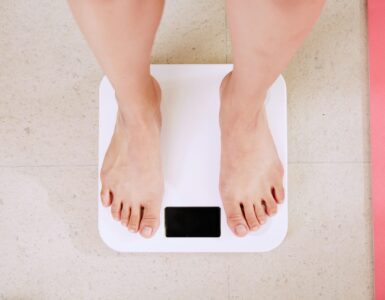Ask any runner, triathlete or walker what they eat before race day, and you’ll get a list of different answers as long as the race itself. What to eat before a race is dependent on the athlete.
- Ylem Curiel, who’s run countless half-marathons and several marathons says, “The night before a race I usually eat spaghetti and garlic bread.”
- Alma Casey, another veteran runner, goes full carb loading the night before: “Pasta, rice or potatoes.”
- Denise Maruffo, a tri-athlete and member of training group Train4Autism has wheat bread, peanut butter and honey the morning of the race. “And, coffee, of course!”
Usually, once athletes find what works for them, they stick with it. That’s smart, since people get in trouble when they do something out of their routine the days leading up to and the morning of the race. Gordon Craycroft, who’s run eight full marathons says, “I always eat exactly what I ate for all of the previous 16 weeks’ long runs: [the night before] grilled chicken breast, baked potato, salad. Then a bagel slathered with peanut butter two hours before the race. Exact regimen for all eight full marathons I’ve done.”
Is carbo loading advised for all types of races? – What to Eat Before a Race
Carbohydrate loading is most advantageous for endurance races, such as long-distance running, swimming and cycling—any type of race where you’re competing at moderate to high-intensity for 90 minutes or more. If you’re embarking on a shorter, lower-intensity activity like a bike ride or strength training, you don’t need the extra carbs. The point is to have enough carbs (muscle sugars) stored so your body doesn’t get fatigued and conk out mid-run (or swim).
According to Baylor University professor Dr. Brian Leutholtz, eating/drinking glucose, sucrose, fructose combinations, and solid carbohydrates are all effective as a means to enhance performance. However, fructose may be more likely to cause gastrointestinal distress if used alone. Fruit, or fruit sugars are a good source of fructose. Solid carbohydrates, such as breads, pastas and fruits should be consumed the night before a race, and in most cases, (based on tolerance) at least four hours prior to competition.
Carb loading helps both men and women, but researchers at Baylor University found women only need to increase their total calories by up to 30 percent for four days prior to the race to gain the most benefits.
Dr. Leutholtz recommends following this sample “carb-loading” schedule to maximize race-day performance:
- 7 days prior to competition: Taper exercise
- 6 days prior: Mixed diet, moderate carbs; taper exercise
- 5 days prior: Mixed diet, moderate carbs; taper exercise
- 4 days prior: Mixed diet, moderate carbs; taper exercise
- 3 days prior: **High-carb diet; taper exercise
- 2 days prior: High-carb diet; taper exercise or rest
- 1 day prior: High-carb diet; taper exercise or rest
**High-carbohydrate diet: 400-800 grams per day; 70-80 percent of dietary calories should be from carbohydrates
Carbohydrate consumption should be primarily in the form of solids, such as breads and pastas until four hours prior to the competition.
One final piece of advice from running coach Shannon Murphy: During the race, only ingest exactly what you’ve been putting in your body during training. “The biggest mistake is to try a new flavor of energy bar or a different brand of electrolyte water,” she says. “I usually try to find out what brand of sports drink they’ll have at the water tables, and if it’s not something I’ve tried, I’ll stick with water.”
Rieva Lesonsky is an entrepreneur, best-selling author and self-educated health nut. Follow her @Rieva.
Photo Credit: jacoblund/iStock/Thinkstock
This article originally appeared on TalkAboutWellBeing.com.



